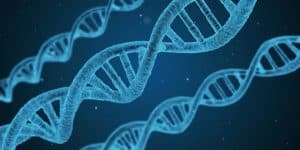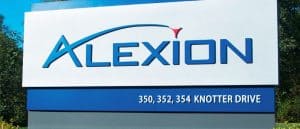More evidence required for Alexion’s Kanuma, says NICE
pharmafile | February 18, 2016 | News story | Medical Communications, Research and Development | Alexion, Kanuma, LAL-D, rare diseases
NICE says it needs additional trial data before it can recommend Alexion’s enzyme replacement therapy Kanuma (sebelipase alfa) for the treatment of infants with rapidly progressive lysosomal acid lipase deficiency (LAL-D) before six months of age. NICE’s draft guidance rejected the drug outright for all other LAL-D patients.
In draft guidance, NICE said the trials should be designed to demonstrate the cost-benefit ratio of the drug against the current treatment standard of bridging therapy followed by a hematopoietic stem cell transplant (HSCT) for these patients.
The regulator rejected the drug for all other LAL-D patients, on the basis that the severity and extent of symptoms is more variable and life expectancy is unclear in non-infant patients.
The NICE committee said rapidly progressing LAL-D in babies is usually diagnosed within the first weeks of life, and has an average life expectancy of 3.7 months – a fact which it said made the evidence of Kanuma’s benefit in this population “more compelling.”
LAL-D is an extremely rare metabolic disease, caused by genetic mutations that result in a marked decrease or loss in LAL enzyme activity in the lysosomes across multiple body tissues, limiting the body’s ability to break down fatty material (cholesteryl esters and triglycerides)- causing chronic build-up in the liver, blood vessel walls, and other organs. The condition eventually leads to multi-organ damage and premature death.
Connecticut-based Alexion was disappointed by NICE’s decision, particularly in light of the fact that, despite the UK regulator’s reservations, the US FDA approved Kanuma for LAL-D deficiency late last year, and the European Commission said yes to the drug in September.
The company said in a statement: “Alexion believes that NICE has failed to recognise the transformative clinical innovation of Kanuma for patients with LAL-D, a life-threatening disease of which more than 80% impacted are children. NICE made this initial decision despite the robust medical evidence with Kanuma that shows a major survival benefit in babies and a significant improvement in multiple liver parameters in children and adults with LAL-D, a genetic and ultra-rare disease.
“LAL-D is fatal in babies and in children and adults, approximately half will progress to have liver damage or failure such as fibrosis, cirrhosis or need a liver transplant within three years. Kanuma is the only approved therapy that replaces the missing vital enzyme in infants, children and adults, addressing the underlying cause of LAL-D.
“Kanuma was approved in the European Union based on robust clinical trials in infants, children and adults with LAL-D. Alexion will continue its discussions with NICE to ensure that patients with LAL-D in England will have access to Kanuma. Alexion has a history of successfully working with governments and private payers in 50 countries to ensure that patients have access to high value ultra-orphan therapies, and we are committed to doing the same for Kanuma.”
Alexion acquired Kanuma after it paid out $8.4 billion for fellow US orphan drug developer Synageva biopharmaceuticals in May last year.
Joel Levy
Related Content

AstraZeneca to acquire Amolyt Pharma for up to $1.05bn
AstraZeneca has announced that it has entered into a definitive agreement under which it will …

AstraZeneca’s Alexion partners with Pfizer for rare disease therapies
Alexion, AstraZeneca’s Rare Disease division, has announced that it has entered a definitive purchase and …

Alexion pauses Phase III ULTOMIRIS COVID-19 trial enrolment
Alexion has paused further enrolment in the global Phase III study of ULTOMIRIS (ravulizumab-cwvz) in …







